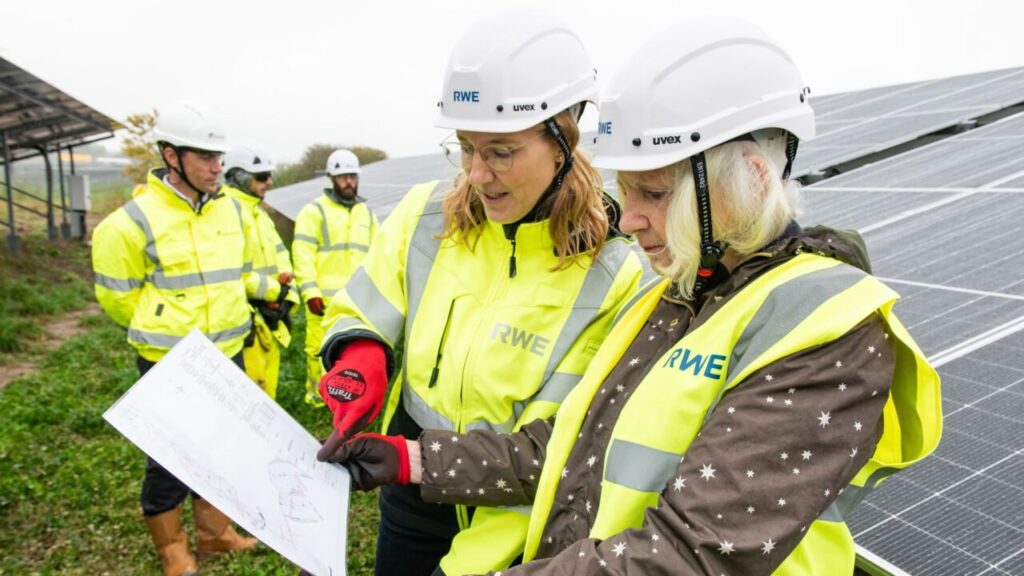
Power generator RWE has announced it has broken ground on four new solar projects across the UK, while also reaffirming its commitment to responsible development.
The firm has begun construction on the Copse Lodge, Fraddon, Laynes Wood, and Wick Farm solar developments, which will have a combined capacity of around 200MW. With these developments now underway, RWE now has a total of 11 solar projects in construction. The four newly commenced projects are scheduled to be operational as soon as 2026.
At the same time, RWE has launched the UK Solar Developers Charter, a document outlining the firm’s pledges to be a positive force in the communities where it develops solar projects. The charter lays out 15 commitments under four broader categories: good land management, meaningful community engagement and benefits, respect for local heritage and the rural environment, and responsible sourcing, respect for human rights and the environment.
As part of these commitments, RWE pledges to design all of its projects to maximise opportunities for local wildlife, ensure efficient use of land and grid infrastructure by co-locating solar and battery projects where possible, prioritizing the use of local labour and contractors, and ensuring sustainable waste management.
Commenting on the two announcements, Katja Wünschel, CEO of RWE Renewables Europe & Australia said: “Starting construction on these four new solar farms marks another major step in our renewable energy journey here in the UK. With 11 solar projects now in construction, RWE is making an important contribution to ensuring a cleaner, more sustainable energy future. We are proud to play a leading role in supporting the UK’s net-zero ambitions and helping to secure affordable, green energy for generations to come. In addition, our new Developers Charter will help frame how our projects will not only deliver clean energy but also leave a positive, lasting legacy on local ecosystems and communities, setting a clear standard for environmental responsibility in the delivery of solar power.”
Community engagement and responsible development
In the wake of several high-profile planning permission refusals, the solar industry is looking to examine how it can win the support of those local to proposed developments and clean up the image of solar infrastructure development.
RWE’s UK Solar Energy Developers Charter follows in the footsteps of Solar Energy UK’s “Community Engagement Good Practice Guidance” report released in July of this year, which provides a slew of case studies demonstrating best practices for developers when engaging with those living near proposed solar farms and lays out guidance for a positive development process.
Perhaps the biggest image change the solar industry needs concerns the myth set out by the former Conservative government, who made repeated claims that solar farms were a threat to food security. Since taking over as Secretary of State for the Department of Energy Security and Net Zero (DESNZ), Ed Miliband has been working to dispel this myth, as explored in a previous Solar Power Portal blog.

